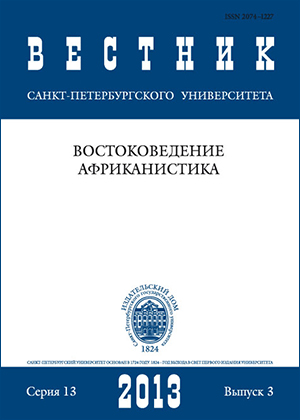Buddhist scholasticism and modern speech-act theories
Abstract
Scholasticism is usually thought of as a European tradition mostly associated with the Middle Ages. Yet, a very similar tradition is attested in Buddhism too. It is interesting to note that the Indo-Tibetan thinkers crucially anticipated some basic points of modern speech-act theory. At least implicitly, they use such an important category of modern semantics and pragmatics as presupposition. It is this category that helps adequately interpret the famous ‘noble silence’ of the Buddha when the latter was approached with metaphysical queries like that about whether this world is finite or not, etc.: any question like this presupposes existence of the world which is meaningless. The speech-act theory is also helpful in understanding the problem of ineffability. In Buddhism, language is not the ultimate vehicle of information. Even sacred texts cannot supply an adept with the ultimate truth. The meaning of a proposition is just a ‘raw material’ to be supplemented in many ways, including meditation, before the ultimate truth is attained. In the speech-act theory, too, they differentiate between different levels of the truth.
Keywords:
scholasticism, Buddhism, language, speech acts, ineffability, presupposition
Downloads
References
Downloads
Published
How to Cite
Issue
Section
License
Articles of "Vestnik of Saint Petersburg University. Asian and African Studies" are open access distributed under the terms of the License Agreement with Saint Petersburg State University, which permits to the authors unrestricted distribution and self-archiving free of charge.





